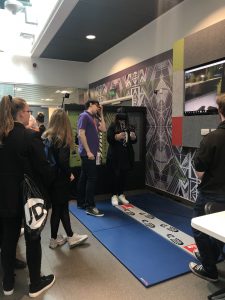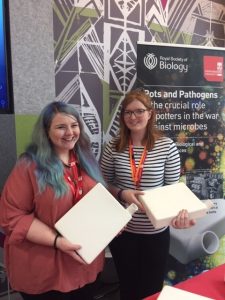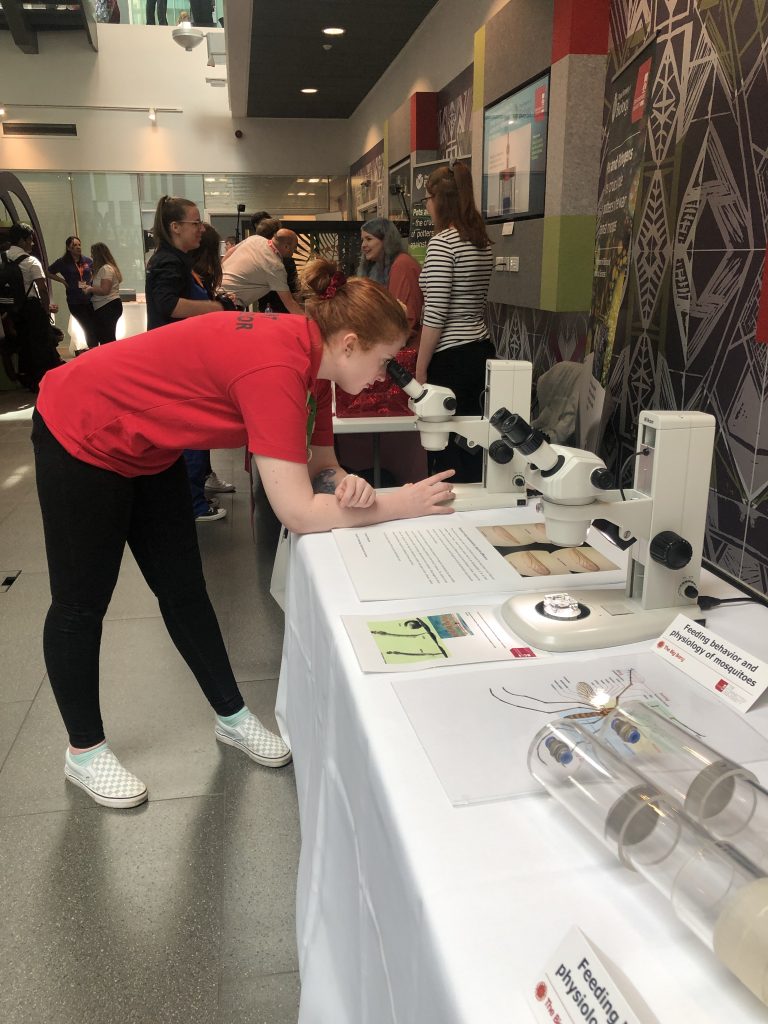The Big Bang Fair invites students and companies from around the West Midlands to celebrate all things STEAM (Science, Technology, Engineering, Arts and Mathematics). This is the second year that Staffordshire University has hosted the Big Bang Fair, after a very successful first year. This year was even bigger and better than before!
This year the event was an astonishing success with a whopping 3000 visitors on campus! There were all sorts of workshops and activities in which the students visiting could get involved with. One of the most popular stands in the event was ran by two PhD students about plastics in the ocean. Visitors were offered biodegradable glitter face painting as part of their activity. At one point there were over 30 students queuing to have their faces painted!
Another very popular stand at the event was the virtual reality activity. The VR stand was ran by our Psychology Department to show how the brain could be tricked into thinking you are walking along a plank suspended in the air, rather than the reality that you were stood on the floor. This was not only popular with the students but also with their teachers as well, everyone wanted to experience it!
The stand which I helped to run, Pots and Pathogens, was right next to the VR activity, which was a great spot as it meant we were very busy talking to the students whilst they were waiting to try it out. We were explaining to students how the Staffordshire Potteries played an important role in the upscale of production of penicillin back in the 1940’s. Heatley’s vessel was made by James Macintyre’s firm in Burslem, they came up with the prototype which showed how the vessel’s shape was effective due to it being stackable, therefore saving space.
 The Heatley’s Vessel was made out of ceramic, was rectangular in shape, could hold about a litre of fluid and was glazed on the inside. This Vessel was extremely important in the progression of antibiotics and shows just how important Staffordshire was to the future of antibiotics. The Heatley’s vessels on our stand were actually made by the ceramic team at Staffordshire University, and made using traditional techniques. This meant that the vessels looked more authentic and what they actually were like, so that the students could experience a little taste of history.
The Heatley’s Vessel was made out of ceramic, was rectangular in shape, could hold about a litre of fluid and was glazed on the inside. This Vessel was extremely important in the progression of antibiotics and shows just how important Staffordshire was to the future of antibiotics. The Heatley’s vessels on our stand were actually made by the ceramic team at Staffordshire University, and made using traditional techniques. This meant that the vessels looked more authentic and what they actually were like, so that the students could experience a little taste of history.
One of the major problems we are facing is antimicrobial resistance to antibiotics. This is something that we explained to the students and discussed how it will be budding scientists like themselves that could help find a solution. Events like these are always really great to connect with students and get them interested in science and how it can be an amazing and rewarding career option. This year was hugely successful and we were very proud to host the Big Bang Fair West Midlands 2019 at Staffordshire University for the second year in a row.
Chelsea Malpass
Level 5, BSc (Hons) Biological Science

